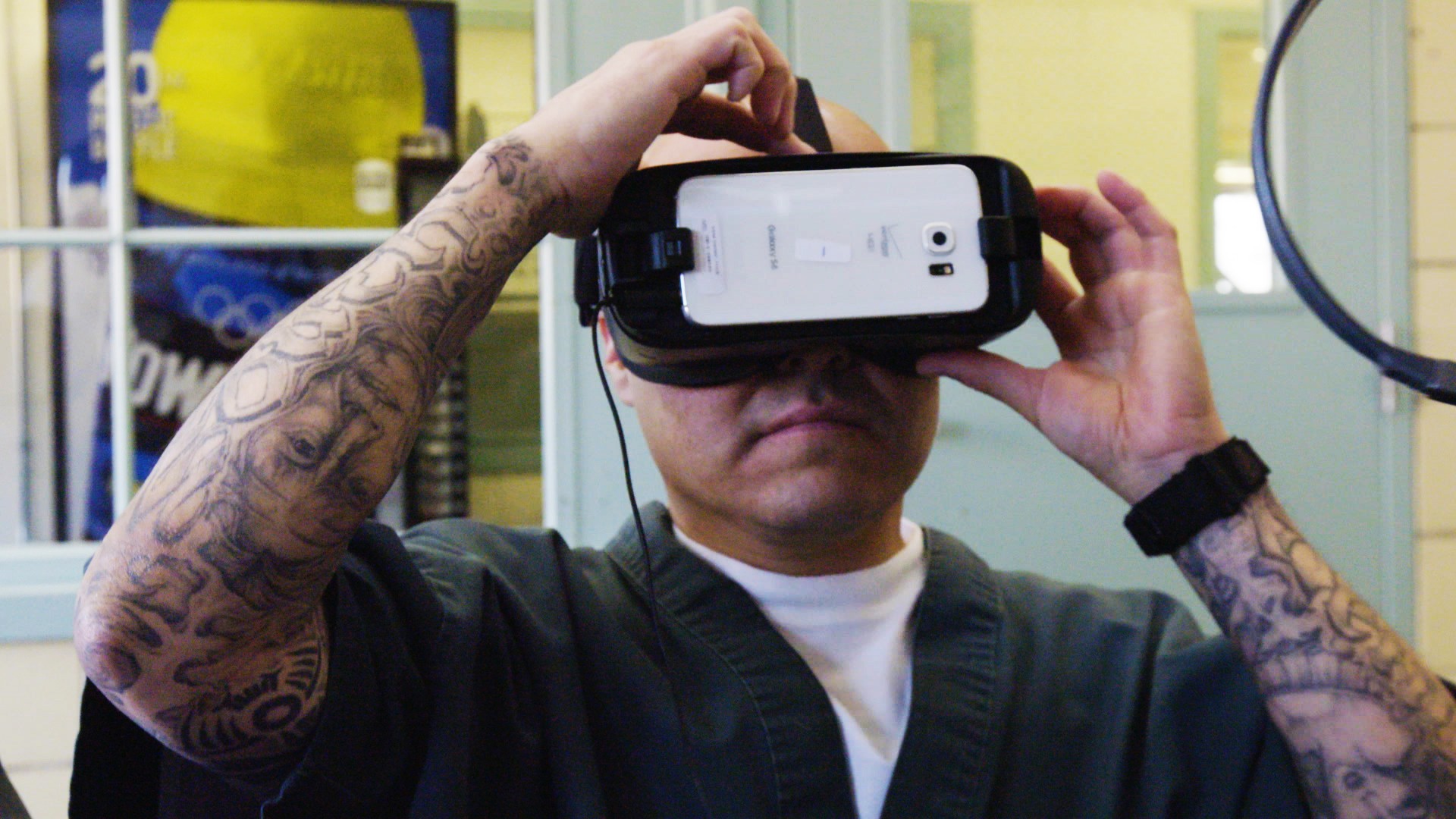Kanahus Manuel on her wedding day.
Planning a destination wedding is a stressful thing to do with your time (I assume; never tried) but it gets even more complicated when you add criminal record checks, prison security, a room full of 100 strangers, and a vending-machine-catered reception.This is precisely what’s been on Kanahus Manuel’s to-do list for the last several months. On Saturday she married her incarcerated partner Orlando Watley surrounded by family at a maximum-security prison in California.I’ve interviewed Kanahus a few times about her Indigenous sovereignty activism in the past, so I called her up to congratulate her and ask what it’s like to get hitched in a place that doesn’t allow food, photos, or large groups of people.“There were 11 of us, plus Orlando’s mother,” she told me by phone on her way back to her home on Secwepemc territory in central British Columbia. “The prison policy is you can only have 10 in—nobody had told us 10 was the limit.”That wasn’t the only surprise prison rule Kanahus learned on her wedding day. “You also have to have two-inch straps,” she said of the prison’s dress code. “I had this see-through lace thing across my shoulders, so they denied me access because of my wedding dress.”Not one to let men in uniforms ruin a good party, Kanahus and her sisters ripped strips off the garment bag that came with her dress and pinned the makeshift “straps” on in the parking lot. After some negotiation with security, their wedding party of 12 was allowed to finally meet the groom.On any given weekend, a prison visiting room is full of inmates visiting with their parents, partners and kids under the watchful eye of guards. Kanahus recalls there were about 45 tables, with as many as five people sitting around each. The space is filled with the sounds of visitors and prisoners mingling. And because you’re not allowed to turn your back to the front of the room, those 100 or so strangers became a de facto audience to their vows. Kanahus’s family formed a semi-circle around the couple, to give a sense of intimacy and privacy. They chose an officiant who had done time on the same yard, who was celebrating 20 years of freedom this February. “He said, ‘I married my wife five years before I got out, so I know this can work—she stayed by me those last five years.’”(You might be wondering a lot of things, among them why someone would choose a prison wedding, and not wait until said prisoner is outside to hitched. It’s probably worth noting married couples are eligible for family visits, which means staying in a bungalow on the yard together for up to two days.)After the officiant said a few words, he asked for the rings. “We said no, we don’t have a ring, but this is the real ring—our family that’s here supporting us always.” Orlando and Kanahus each said their own vows to each other. There’s no photography allowed on the inside, except for the “click clicks” taken by prison staff.“My mom said a toast, and my sister said a speech—it was so, so emotional for all of my family. They’ve known Orlando all this time but this was the first time they could see him,” Kanahus told VICE. “Everybody was tearing up.”Prison rules only allow each person to bring in a maximum of $50 cash, and if prison television dramas have taught us anything, it’s that you’re obviously not allowed to bring in food, lest a nail file or wire cutters be hidden in the cake. Instead, they toasted with Gatorade and ate coconut-flaked cakes purchased from the prison vending machines. “We joked it was just like every other native wedding—we just improvised.”The guards let five people stay beyond the first hour and a half, says Kanahus. Her sister and the best man stayed with their kids. By this time love was in the air, and the other inmates—”all the killers and bank robbers”—began congratulating the happy couple.Kanahus says her wedding fits into her own life mission to fight injustice—in this case the disproportionate incarceration of people of colour. “We’re in there and it’s all native and black people—everyone is brown and black, maybe one family of white people,” she said. “Those families could really relate to our family. They were crying too—seeing us month after month visiting each other.”“We’re defying their prison law, defying their system, doing a ceremony, showing our love, and we’ll never stop that.”Follow Sarah Berman on Twitter.
Kanahus’s family formed a semi-circle around the couple, to give a sense of intimacy and privacy. They chose an officiant who had done time on the same yard, who was celebrating 20 years of freedom this February. “He said, ‘I married my wife five years before I got out, so I know this can work—she stayed by me those last five years.’”(You might be wondering a lot of things, among them why someone would choose a prison wedding, and not wait until said prisoner is outside to hitched. It’s probably worth noting married couples are eligible for family visits, which means staying in a bungalow on the yard together for up to two days.)After the officiant said a few words, he asked for the rings. “We said no, we don’t have a ring, but this is the real ring—our family that’s here supporting us always.” Orlando and Kanahus each said their own vows to each other. There’s no photography allowed on the inside, except for the “click clicks” taken by prison staff.“My mom said a toast, and my sister said a speech—it was so, so emotional for all of my family. They’ve known Orlando all this time but this was the first time they could see him,” Kanahus told VICE. “Everybody was tearing up.”Prison rules only allow each person to bring in a maximum of $50 cash, and if prison television dramas have taught us anything, it’s that you’re obviously not allowed to bring in food, lest a nail file or wire cutters be hidden in the cake. Instead, they toasted with Gatorade and ate coconut-flaked cakes purchased from the prison vending machines. “We joked it was just like every other native wedding—we just improvised.”The guards let five people stay beyond the first hour and a half, says Kanahus. Her sister and the best man stayed with their kids. By this time love was in the air, and the other inmates—”all the killers and bank robbers”—began congratulating the happy couple.Kanahus says her wedding fits into her own life mission to fight injustice—in this case the disproportionate incarceration of people of colour. “We’re in there and it’s all native and black people—everyone is brown and black, maybe one family of white people,” she said. “Those families could really relate to our family. They were crying too—seeing us month after month visiting each other.”“We’re defying their prison law, defying their system, doing a ceremony, showing our love, and we’ll never stop that.”Follow Sarah Berman on Twitter.
Advertisement
Advertisement

